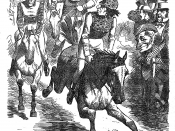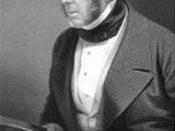The 1850's were a rather bleak period concerning parliamentary reform. A number of factors contributed to the continual failure of any attempt to secure any reform in the 1850's. Perhaps the greatest of these was indifference. The collapse of Chartism was followed by a period of greatly reduced activism for parliamentary reform, while the Anti-Corn Law League never really moved into the area of political activism once it had achieved its specific objective of repealing the Corn Laws. It could be also argued that the growth of economic prosperity in mid-Victorian Britain reduced the immediate necessity for parliamentary reform, while foreign affairs held public attention in a quite unprecedented way. Such distractions from parliamentary reform included the Crimean War and events in Italy and Poland. Also there was Palmerston, (Prime Minister of the 50's) who was very popular and very powerful and had always succeeded in keeping a tight rein on the radicals in parliament.
Even the sporadic efforts of Russell were frustrated. The House of Commons was largely hostile to reform because, at this stage it saw no need for it. In any case, its social composition was a natural barrier to any degree of democratisation. In 1841, it has been calculated, 342 members were related to the peerage and 240 others were members of the landed gentry; this meant that fewer than 100 were without privileged connections. Most MPs ignored Russell and allied with Palmerston, whose views on the extension of the franchise were well known. Indeed, he and the Conservative leader, Derby made a tactical agreement to ensure that the issue was not raised in parliament between 1859-65, while he failed to refer to it at all during the 1865 election campaign. There was no shortage of MPs willing to express arguments against reform. The two best...


